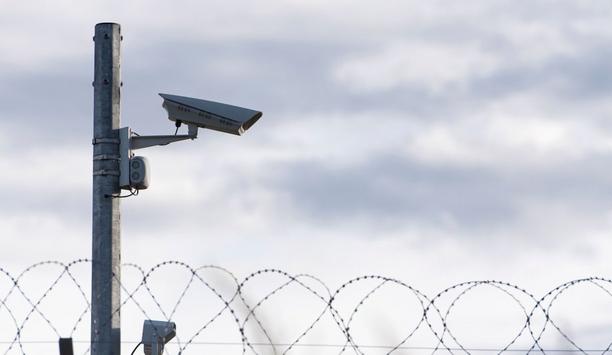The port city of Bodrum is the second largest tourist city in Turkey, with a peak tourist population of over 1.5 million people during the summer months. To ensure the protection of tourists and locals alike, as well as the port itself, the Bodrum Police Department commissioned the construction of a city-wide wireless video surveillance network, utilising Proxim Wireless Tsunami™ MP.16 3500 licensed band WiMAX radios as the wireless backhaul to connect over 70 video cameras.
This deployment is a direct result of an initiative by Turkey's Department of the Interior to roll out video surveillance across the entire country. Prior to deploying Proxim's WiMAX radios as backhaul, the city of Bodrum had attempted to utilise traditional wired telecom infrastructure for the video surveillance network. But as an old, historical city, it was impossible to trench the number of lines that would have been necessary to provide enough throughputs for the large number of cameras.
"Not only would digging up the streets of Bodrum compromise the historical integrity of the city, but it would have been completely cost prohibitive," said Faruk Meltem, IT Director of the Bodrum Police Department. "Given the extremely high number of tourists that visit Bodrum and the amount of activity in the port, we needed a solution that could help our police force more efficiently protect our people and our assets, without breaking the bank. And since today's wireless networks are highly secure, we could safely deploy wireless at a fraction of the cost, but with all the performance and security features we required."
As a result, the Bodrum Police Department turned to STM, a wireless systems integrator, and Corvus, a Proxim distributor, for the overall design and implementation of the deployment. Corvus, which has worked with Proxim on numerous video surveillance networks throughout Turkey, knew from experience that Proxim's WiMAX radios are optimised to allow the high throughput uplink connections mandatory for video backhaul, and could provide more than enough throughput for the 70 video cameras. And by utilising Proxim's proven wireless technology, the city of Bodrum saved an estimated $60,000 per month on leased line costs, while also avoiding the high cost (and damage to the historical city) that would have been incurred by trenching for fibre. Proxim's WiMAX radios also enabled the network to be deployed in a matter of months, as opposed to the years it would have taken to deploy the necessary wired telecom infrastructure.
The deployment is a direct result of an initiative by Turkey's Department of the Interior to roll out video surveillance across the entire country |
"This is the 9th wireless video deployment we have executed with Proxim's broadband wireless technology, and each and every time we have been able to save our customers millions on deployment costs over wired infrastructure," said Atilgan Yilmaz, General Manager of Corvus. "Proxim's WiMAX technology provides as much bandwidth as - and in some cases more than - wired telecom infrastructure, so when you combine the cost and performance benefits, Proxim is the easy choice for wireless video surveillance networks."
Overall, STM and Corvus deployed 67 of Proxim's Tsunami MP.16 3500 subscriber stations, connected to 37 Tsunami MP.16 3500 base stations. They deployed over 70 Pelco digital surveillance cameras, each of which required at least 3.5 mbps at any given time to provide 25 frames-per-second performance and 4CIF video quality. To allow co-location of Base Stations in adjacent licensed channels GPS was used to synchronise the Base Stations together for optimal performance.
"Now that wireless broadband networks have proven themselves time and time again to provide at least the same performance of wired telecom infrastructure at a fraction of the cost, we are seeing the demand for wireless to enable video surveillance networks skyrocket," said Humberto Malave, Vice President at Proxim Wireless. "As a result, critical video surveillance networks like this one in Bodrum are able to be deployed much quicker, and put in locations where you need them independent of any wired backhaul limitations. This enables police departments and public safety organisations to put the cameras where the crime is."
Challenge:
- With a peak tourist population of over 1.5 million people during the summer months, Turkey's port city of Bodrum needed a video surveillance network to help ensure the security of both residents and tourists,
- In addition, Bodrum needed a solution that could monitor and secure the highly-trafficked port,
- Due to the size and scope of the network - as well as the inability to trench through the old city - deploying wired solutions was both impossible and cost-prohibitive.
Proxim solutions:
- A city-wide wireless video surveillance network, connecting over 70 video surveillance cameras wirelessly,
- Proxim Wireless' Tsunami™ MP.16 3500 licensed band WiMAX radios were used to wirelessly backhaul all of the video cameras,
- Overall, STM and Corvus deployed 67 of Proxim's Tsunami MP.16 3500 subscriber stations, connected to 37 Tsunami MP.16 3500 base stations.
Results:
- By utilising Proxim's proven wireless technology, the city of Bodrum saved an estimated $60,000 per month on leased line costs, while also avoiding the high cost (and damage to the historical city) that would have been incurred by trenching for fibre,
- Proxim's WiMAX radios also enabled the network to be deployed in a matter of months, as opposed to the years it would have taken to deploy the necessary wired telecom infrastructure.












